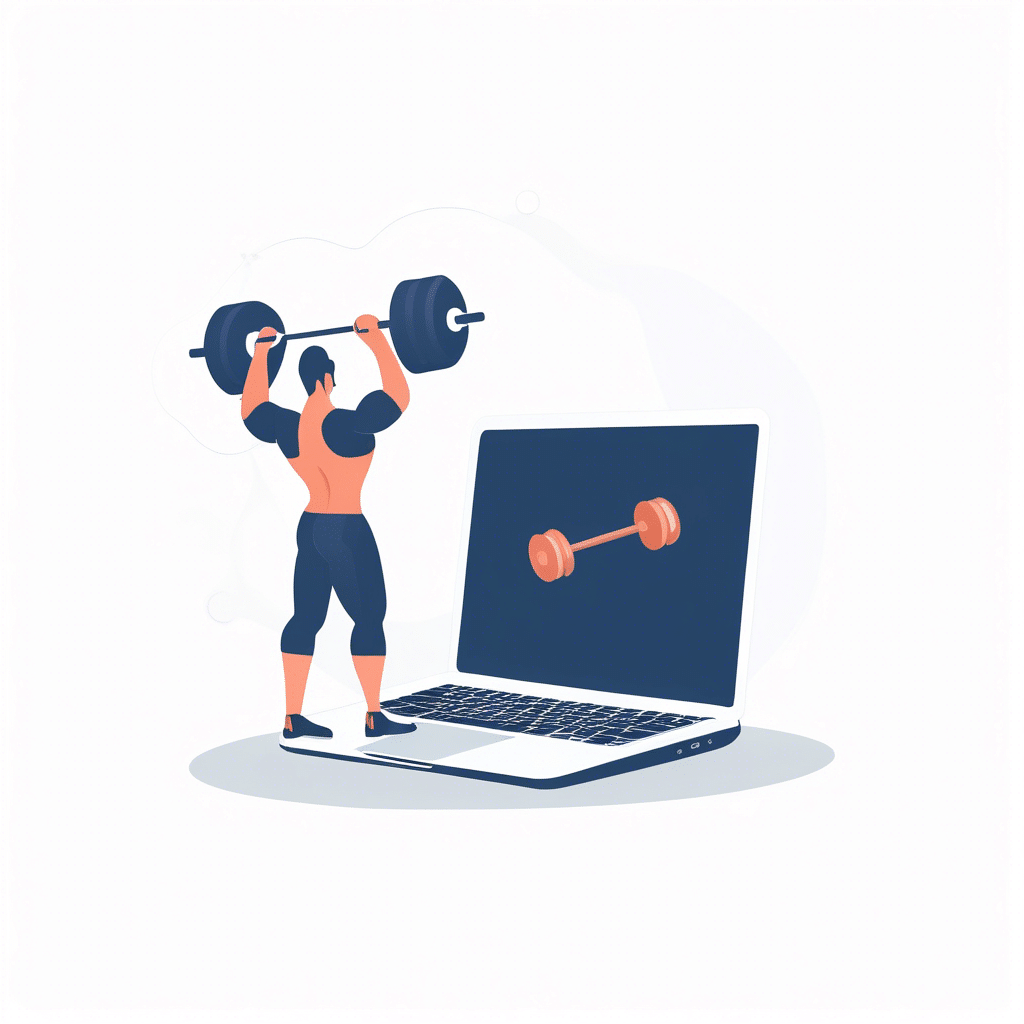In the fast-paced and ever-evolving world of information technology, IT professionals play a crucial role in keeping businesses running smoothly. Their expertise in areas such as AI and cybersecurity is invaluable, but the demands of the job can take a toll on their health and well-being. Long hours, high-stress environments, and sedentary work can all contribute to a decline in physical and mental health. However, it is possible for IT professionals to maintain good health, a sharp mind, and be effective in their work. In this article, we will explore essential tips for IT professionals to maintain optimal health, manage stress, boost cognitive function, and achieve a healthy work-life balance. By implementing these strategies, IT professionals can improve their overall well-being, maintain good output, and become even more effective in their roles. So let’s dive in and discover how IT professionals can prioritize their health and well-being in a demanding industry.
- 1. "Maintaining Optimal Health: Essential Tips for IT Professionals"
- 2. "Stress Management Strategies for Effective IT Professionals"
- 3. "The Link between Good Health and Productivity: How IT Professionals Can Maintain Both"
- 4. "Boosting Cognitive Function: Strategies for IT Professionals to Keep Their Minds Sharp"
- 5. "Achieving Work-Life Balance: Tips for IT Professionals to Stay Healthy and Effective"
1. "Maintaining Optimal Health: Essential Tips for IT Professionals"

In the fast-paced world of IT, maintaining good health is crucial for IT professionals to excel in their work and stay ahead of the game. Long hours, demanding projects, and high levels of stress can take a toll on both physical and mental well-being. However, with some essential tips and strategies, IT professionals can ensure that they remain in peak condition, with a sharp mind and effective output.
1. Prioritize Physical Health: Regular exercise, a balanced diet, and sufficient sleep are the pillars of good physical health. As an IT professional, it’s important to make time for physical activity, whether it’s hitting the gym, going for a run, or practicing yoga. Exercise not only helps improve cardiovascular health but also boosts mental sharpness and reduces stress levels. Additionally, fueling your body with nutritious foods and ensuring an adequate amount of sleep each night will provide the energy and focus needed for optimal performance.
2. Manage Stress Effectively: Stress is an inevitable part of the IT profession, but learning to manage it is crucial for maintaining good health and productivity. Find stress-management techniques that work for you, whether it’s practicing mindfulness meditation, deep breathing exercises, or engaging in hobbies that help you unwind. Taking regular breaks throughout the workday and setting boundaries between work and personal life can also help reduce stress levels.
3. Maintain Mental Sharpness: IT professionals rely heavily on their cognitive abilities, so keeping the mind sharp is essential. Engaging in activities that challenge the brain, such as puzzles, brain teasers, or learning new skills, can help improve cognitive function. Additionally, staying up-to-date with the latest trends and advancements in the IT industry through continuous learning and professional development will keep your mind sharp and ensure you remain effective in your role.
4. Foster a Supportive Work Environment: Surrounding yourself with a supportive work environment can significantly impact your overall well-being. Cultivate positive relationships with colleagues, foster open communication, and seek support when needed. Collaborating with a strong team and having a supportive network can help alleviate stress, enhance job satisfaction, and maintain good mental health.
5. Take Regular Breaks: IT professionals often get caught up in the demands of their work, leading to long hours and little time for breaks. However, taking regular breaks throughout the day is essential for maintaining productivity and avoiding burnout. Stepping away from the computer screen, stretching, and engaging in activities that provide mental refreshment can improve focus and prevent mental fatigue.
By prioritizing physical health, effectively managing stress, maintaining mental sharpness, fostering a supportive work environment, and taking regular breaks, IT professionals can maintain good health, a sharp mind, and be effective in their work. Remember, investing in your well-being is not only beneficial for your personal life but also crucial for long-term success in the IT industry.
2. "Stress Management Strategies for Effective IT Professionals"

Stress Management Strategies for Effective IT Professionals
Being an IT professional can be a demanding and high-pressure job. The constant need to stay updated with the latest technology trends, meet tight deadlines, and solve complex problems can take a toll on both your physical and mental well-being. However, by implementing effective stress management strategies, you can maintain good health, a sharp mind, and be more productive in your work.
1. Prioritize self-care: It’s crucial to prioritize your own well-being. Make sure to get enough sleep, eat a balanced diet, and engage in regular exercise. Taking care of your physical health will provide you with the energy and stamina needed to handle the demands of your job effectively.
2. Set realistic expectations: IT professionals often face unrealistic expectations and tight deadlines. Learn to communicate effectively with your superiors and clients and set realistic timelines for project completion. This will help alleviate unnecessary stress and allow you to work more efficiently.
3. Practice time management: Effective time management is key to reducing stress levels. Prioritize your tasks based on importance and urgency. Break bigger projects into smaller, manageable tasks and set deadlines for each. This will help you stay organized and prevent work from piling up, leading to unnecessary stress.
4. Take regular breaks: Working long hours without breaks can lead to burnout and decreased productivity. Incorporate short breaks throughout your workday to relax, stretch, or engage in activities that help you unwind. Stepping away from your desk for a few minutes can help clear your mind and improve focus when you return.
5. Develop stress-reducing habits: Find stress-reducing habits that work for you. This could include practicing mindfulness or meditation, engaging in hobbies outside of work, or participating in physical activities such as yoga or jogging. These activities can help alleviate stress and improve your overall well-being.
6. Seek support and network: Connect with fellow IT professionals who understand the challenges you face. Sharing experiences, seeking advice, and venting frustrations can provide a sense of camaraderie and support. Consider joining professional organizations or attending networking events to expand your support network.
7. Learn to say no: It’s important to set boundaries and not take on more than you can handle. Learn to say no when your workload becomes overwhelming or when you feel your mental health is being compromised. Taking on too much can lead to stress and a decline in the quality of your work.
Remember, being an effective IT professional requires taking care of both your physical and mental well-being. By implementing these stress management strategies, you can maintain good health, a sharp mind, and be more productive in your work. Prioritize self-care, set realistic expectations, practice time management, take regular breaks, develop stress-reducing habits, seek support, and learn to say no when necessary. Taking these steps will help you thrive in your career while maintaining a healthy work-life balance.
3. "The Link between Good Health and Productivity: How IT Professionals Can Maintain Both"

The Link between Good Health and Productivity: How IT Professionals Can Maintain Both
As an IT professional, it’s easy to get caught up in the fast-paced and demanding nature of the job. With constant deadlines, complex problem-solving, and the need to stay updated with the latest technology trends, it’s no surprise that many IT professionals often neglect their own health and well-being. However, maintaining good health is not only crucial for personal well-being but also for professional success. In this section, we will explore the link between good health and productivity and provide tips on how IT professionals can maintain both.
1. Prioritize Stress Management:
Stress is an inevitable part of any job, and IT professionals are no exception. However, chronic stress can have detrimental effects on both physical and mental health, leading to decreased productivity and increased risk of burnout. To maintain good health and optimize productivity, IT professionals must prioritize stress management.
One effective way to manage stress is through regular exercise. Physical activity releases endorphins, which are known as "feel-good" hormones. Engaging in activities like running, cycling, or even taking a brisk walk can help reduce stress levels and improve overall well-being. Additionally, practicing relaxation techniques such as deep breathing, meditation, or yoga can also help alleviate stress and promote a calm and focused mind.
2. Maintain a Healthy Work-Life Balance:
Achieving a healthy work-life balance is essential for maintaining good health and being an effective IT professional. Spending excessive hours at work can lead to fatigue, lack of motivation, and decreased productivity. It’s important to set clear boundaries between work and personal life.
To maintain a healthy work-life balance, IT professionals should establish a routine that includes dedicated time for rest, relaxation, and engaging in activities they enjoy outside of work. This could include spending time with family and friends, pursuing hobbies, or simply taking time for oneself. By prioritizing personal time and disconnecting from work, IT professionals can recharge their minds and bodies, leading to increased productivity and overall well-being.
3. Take Care of Physical Health:
Good physical health is the foundation for maintaining a sharp mind and being an effective IT professional. IT professionals often spend long hours sitting in front of a computer, which can lead to a sedentary lifestyle and various health issues. To counteract these effects, it’s important to prioritize physical health.
Regular exercise is crucial for maintaining physical health. Incorporating activities like strength training, cardiovascular exercises, and flexibility exercises into your routine can help prevent common IT-related health issues such as back pain, eye strain, and repetitive strain injuries. Additionally, maintaining a balanced diet and staying hydrated throughout the day can provide the necessary nutrients and energy to stay focused and productive.
In conclusion, maintaining good health is not only important for personal well-being but also for being an effective IT professional. By prioritizing stress management, maintaining a healthy work-life balance, and taking care of physical health, IT professionals can ensure they maintain both their well-being and productivity. Remember, a healthy mind and body are the keys to being an effective and successful IT professional.
4. "Boosting Cognitive Function: Strategies for IT Professionals to Keep Their Minds Sharp"

Boosting Cognitive Function: Strategies for IT Professionals to Keep Their Minds Sharp
As an IT professional, your mind is your most valuable asset. Your ability to think critically, solve complex problems, and stay focused is essential for maintaining good health and being effective in your work. Here are some strategies to help you boost your cognitive function and keep your mind sharp.
1. Prioritize Sleep: Sleep plays a crucial role in cognitive function. Lack of sleep can impair your ability to concentrate, think creatively, and make decisions. Make sure you prioritize getting enough sleep each night. Aim for seven to eight hours of quality sleep to allow your brain to rest and recharge.
2. Exercise Regularly: Physical exercise is not only beneficial for your physical health but also for your cognitive function. Regular exercise increases blood flow to the brain, stimulates the release of growth factors that promote brain health, and improves memory and cognitive performance. Find an exercise routine that works for you and make it a regular part of your schedule.
3. Practice Mindfulness and Meditation: Mindfulness and meditation practices have been shown to reduce stress, improve focus, and enhance cognitive abilities. Take a few minutes each day to sit quietly, focus on your breath, and let go of any racing thoughts. This practice can help you cultivate a calm and clear mind, making you more effective in your work.
4. Engage in Continuous Learning: As an IT professional, it’s important to keep up with the rapid advancements in technology. Engaging in continuous learning not only expands your knowledge but also stimulates your brain and keeps it sharp. Take advantage of online courses, attend workshops, read books, and participate in professional development activities to stay on top of the latest trends and enhance your cognitive abilities.
5. Take Breaks: It may seem counterintuitive, but taking regular breaks throughout the day can actually improve your productivity and cognitive function. Research has shown that brief breaks can help restore focus, prevent mental fatigue, and enhance problem-solving abilities. Incorporate short breaks into your work routine, allowing yourself to relax and recharge before diving back into your tasks.
6. Maintain a Healthy Diet: Proper nutrition is essential for brain health. A diet rich in fruits, vegetables, whole grains, lean proteins, and healthy fats provides the necessary nutrients for optimal cognitive function. Avoid excessive consumption of processed foods, sugary snacks, and caffeine, as they can lead to energy crashes and impair mental clarity.
7. Manage Stress: Stress can take a toll on your cognitive abilities and overall well-being. Find healthy ways to manage stress, such as practicing relaxation techniques, engaging in hobbies, or seeking support from friends and family. Prioritize self-care and make time for activities that help you unwind and recharge.
By implementing these strategies, you can maintain good health, manage stress, and keep your mind sharp as an IT professional. Remember, taking care of yourself is not only beneficial for your own well-being but also for your effectiveness in the workplace.
5. "Achieving Work-Life Balance: Tips for IT Professionals to Stay Healthy and Effective"

Achieving Work-Life Balance: Tips for IT Professionals to Stay Healthy and Effective
In the fast-paced world of IT, professionals are often faced with long hours, high stress levels, and the pressure to constantly stay updated with the latest technologies. This demanding environment can take a toll on their health and overall well-being if not managed properly. Maintaining a healthy work-life balance is essential for IT professionals to stay healthy and effective in their roles. Here are five tips to help them achieve this:
1. Prioritize Self-Care: It’s crucial for IT professionals to prioritize their physical and mental health. Regular exercise, proper nutrition, and sufficient sleep are key factors in maintaining good health. Taking breaks throughout the workday to stretch, walk, or engage in relaxation techniques can also help reduce stress levels and increase productivity.
2. Set Boundaries: Establishing clear boundaries between work and personal life is vital. IT professionals should define specific working hours and avoid bringing work-related tasks into their personal time. This allows for dedicated time to unwind, spend quality time with loved ones, pursue hobbies, and recharge their minds.
3. Delegate and Collaborate: IT professionals often feel the need to handle everything themselves, which can lead to burnout. Learning to delegate tasks and collaborate effectively with team members not only reduces stress but also promotes a healthier work environment. By sharing responsibilities, professionals can focus on their core tasks and maintain a good output without sacrificing their well-being.
4. Practice Effective Time Management: Time management is crucial for IT professionals to maintain a healthy work-life balance. Setting realistic goals, prioritizing tasks, and utilizing productivity tools can help professionals stay organized and efficient. By effectively managing their time, professionals can reduce stress levels and ensure a better work-life balance.
5. Disconnect Regularly: In today’s digital age, IT professionals are constantly connected to their devices, which can make it challenging to disconnect from work. However, it’s essential to take regular breaks from technology to recharge and rejuvenate. Setting aside dedicated time each day to disconnect from work-related notifications and engage in activities they enjoy can help IT professionals maintain good health and a sharp mind.
By implementing these tips, IT professionals can achieve a better work-life balance, reduce stress levels, maintain good health, and become more effective in their roles. Prioritizing self-care, setting boundaries, delegating tasks, practicing effective time management, and disconnecting regularly are key steps towards achieving a healthy and fulfilling career in the IT industry. Remember, taking care of oneself is not a luxury but a necessity for long-term success and well-being.
In conclusion, maintaining good health and a sharp mind is crucial for IT professionals to excel in their work. By implementing the tips and strategies discussed in this article, such as prioritizing physical health, practicing stress management techniques, and striving for work-life balance, IT professionals can enhance their overall well-being and effectiveness in their role. Taking care of one’s health not only improves productivity and output, but also contributes to long-term success and career satisfaction. So, let’s prioritize our health, manage stress effectively, and strive for work-life balance to become effective and successful IT professionals.






